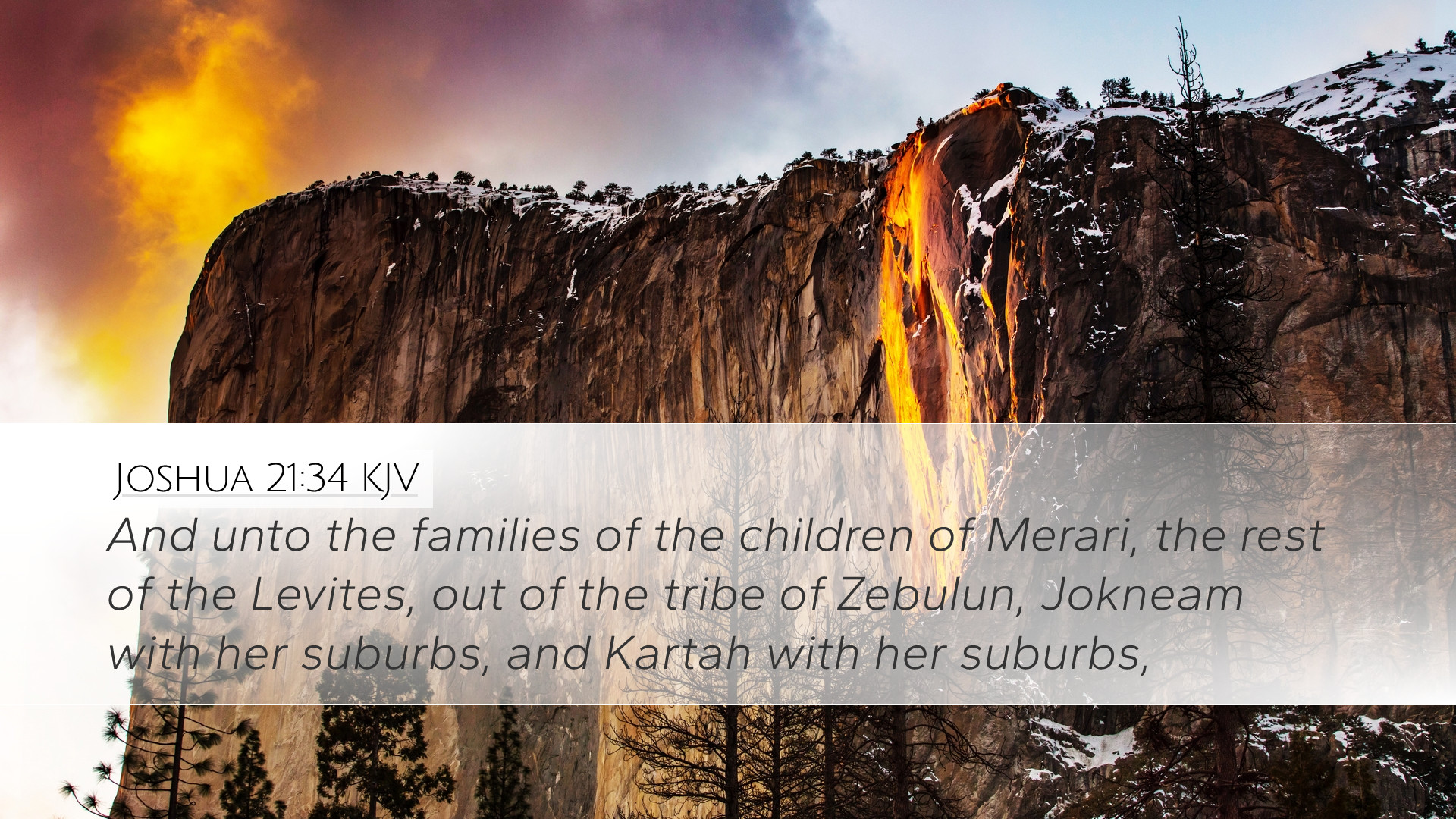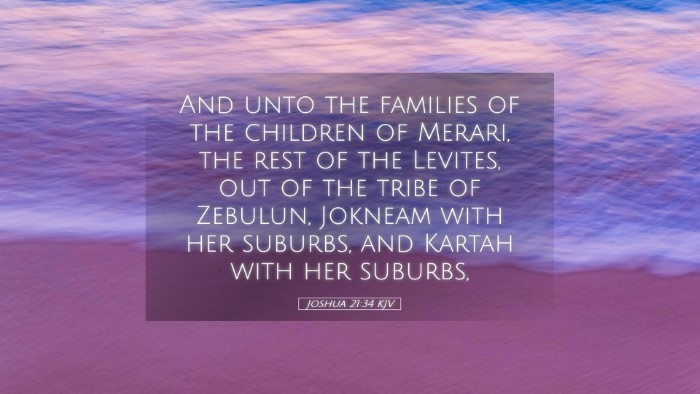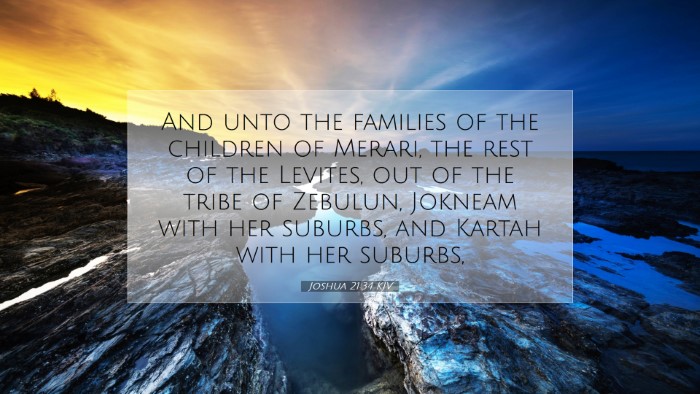Commentary on Joshua 21:34
Joshua 21:34 states: "And from the tribe of Ephraim, a part was given to the children of Aaron the priest, and the city of refuge for the slayer."
Introduction
This verse serves a significant role in understanding the distribution of land among the tribes of Israel, particularly concerning the cities of refuge and their implications for justice and mercy. It highlights the importance of the priestly tribe of Levi, especially the descendants of Aaron, in the spiritual and civil structure of Israel.
Contextual Analysis
Joshua 21 describes the cities allotted to the Levites, reiterating God's promise to provide for every tribe, emphasizing their roles in spiritual leadership.
- Historical Setting: The division of the land occurs after the Israelites have entered Canaan, indicating a fulfillment of God's promise to Abraham, Isaac, and Jacob.
- The Role of the Levites: The Levites did not receive a territorial inheritance like the other tribes, as their role centered on religious duties and worship.
Insights from Commentators
Matthew Henry
Henry emphasizes the significance of cities of refuge. He notes:
- Mercy for the Accused: These cities were established to provide refuge and safety for those who unintentionally caused death, showcasing God's mercy and the importance of justice.
- Priestly Heritage: The inclusion of the cities of refuge within the tribal allotment of Ephraim highlights the intertwined roles of priestly service and civil law, indicating that forgiveness and mercy are foundational to a just society.
Albert Barnes
Barnes provides further depth by discussing the specific tribal connection:
- Ephraim's Significance: He references Ephraim's historical prominence and connections to leadership, suggesting that the city's location would naturally serve as a refuge for those in the central regions of the land.
- Divine Order: Barnes sees this organization as reflective of God’s perfect order and the need for sanctuary, showing a divine strategy in the cities’ placements for both protection and accessibility.
Adam Clarke
Clarke's exposition further explains:
- The Need for Cities of Refuge: He underscores the importance of mercy amid justice, arguing these cities represent God’s provision for human fallibility. Such provision not only offers physical protection but also reinforces the principle of mercy surpassing strict justice.
- Collegial Responsibility: Clarke elaborates on the responsibility that comes with priestly instruction and the Levites' role in teaching the people about these cities, emphasizing a community-oriented approach to law and grace.
Theological Implications
This verse serves as a rich foundation for theological reflection on various themes:
- Justice and Mercy: The existence of cities of refuge embodies the tension between justice (punishing wrongdoing) and mercy (offering asylum), a key theological balance vital for spiritual leaders today.
- Leadership and Spirituality: The connection to the priestly order invites discussion on the responsibilities of spiritual leaders not only to uphold the law but to embody grace and compassion in their ministries.
- God’s Provision: It affirms God's care and foresight in providing safe havens for the vulnerable, revealing His character as a protector and refuge, traits necessary for leaders to exhibit in their churches.
Practical Applications
For pastors, students, and scholars, Joshua 21:34 invites practical applications:
- Creating Safe Spaces: Reflect on the importance of creating church environments where people can find refuge and healing amidst their struggles, akin to the cities of refuge.
- Teaching on Grace: Emphasize the importance of mercy in sermons and teachings, reminding congregations of the necessity of grace in their interactions and judgments.
- Justice Ministry: Encourage engagement in justice efforts that reflect God's care for the marginalized, using the model of the cities of refuge as a guide for action.
Conclusion
Joshua 21:34, while a simple allotment of land, encapsulates profound integrative themes of justice, mercy, leadership, and divine provision. Through the lens of historical and theological insights from esteemed commentators, this verse is not merely a historical record, but a call to embody its principles in our present-day contexts.


